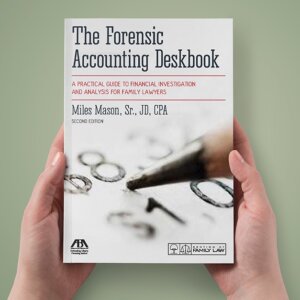Wife Entitled to Half of Business Income Overlooked at Trial
Tennessee case summary on property division classification in divorce.
Wanda Sue Averwater v. James Paul Averwater
The husband and wife in this Rutherford County, Tennessee, case were married in 1992, while both worked for a construction company. Three years later, they started their own company.
The wife filed for divorce after 27 years. The parties were engaged in pretrial wrangling for a few years, and at one point, the wife discovered that $380 had been deposited into a bank account of their company, which had previously been closed. The bank informed her that there had been a clerical error, but didn’t provide any details. The wife suspected that the husband was hiding money. Eventually, she issued a subpoena and notice of deposition of bank employees.
The bank tried to quash the subpoena, but the court ordered it to provide a full explanation of the mysterious deposit to the wife’s attorney. The attorney, however, was under orders not to disclose the information to the wife.
It turned out that the parties’ adult daughter was a borrower at the bank, and that when she made a loan payment, it was accidentally deposited into the construction company account. The daughter supported this explanation, but the wife still suspected that something was wrong, and sought more discovery. This request, however, was denied.
Trial commenced, but the wife fired her attorney after the third day and requested a continuance. The court allowed the continuance, but did not allow her to use marital assets to hire the new lawyer.
The wife found an attorney willing to take the case, but that attorney was not available at the scheduled trial date. A request for a further continuance was denied, and she proceeded without a lawyer. She had a panic attack and was unable to proceed, and for the final two days of trial, she was represented by a lawyer.
After the wife filed for divorce, the husband created a new construction company. The husband was granted a divorce, and the court divided the property. A disputed point was $190,000 in one of the husband’s retirement accounts. The trial court held that this was the husband’s separate property. The wife then appealed to the Tennessee Court of Appeals.
The wife first argued that she was treated unfairly as a pro se litigant, but the appeals court affirmed the lower court’s rulings in this regard.
The wife next argued that the retirement account should have been treated as marital property. But there was evidence that the accounts had been funded by the husband prior to the marriage, and no evidence that marital funds had been added. Therefore, the appeals court affirmed in this regard.
The wife also argued that the husband’s business created after the filing of the divorce should have been considered marital property. Here, the wife had more success. The lower court had expressly decided to divide the marital property equally, but had merely overlooked this asset in the final division. Both parties agreed that it was marital property. Therefore, the appeals court ordered the husband to pay the wife half the profit from that company.
The appeals court also affirmed the lower court’s denial of alimony to the wife. It declined to award the husband his attorney’s fees.
No. M2020-00851-COA-R3-CV (Tenn. Ct. App. Dec. 28, 2023).
See original opinion for exact language. Legal citations omitted.
To learn more, see Property Division in Tennessee Divorce and view our video Is Tennessee a 50 50 divorce state?






